Developing innovative solutions to the world's biggest challenges to transform lives.
Drawing together expertise from across biosciences and biotechnology, medical, health and care sciences, we’re making positive changes to the global community.
To explore selected case studies from some of our key research areas, use the filters below.
-

Assessing the impact of air pollution exposure in pregnancy on child development and health
A UK-wide project looking at the impact of exposure to indoor and outdoor pollution during pregnancy on baby development and child health.
Read more
-

Increasing understanding of congenital heart disease and research capacity building in Africa
We are using this information to help build capacity to conduct genome wide studies of congenital heart disease in low- and middle-income countries and improve early diagnosis in these settings. The early detection of congenital heart disease allows for greatly improved clinical outcomes and reduces the risk of complications arising later in life.
Read more
-

Rapid genetic testing to reduce risk of secondary strokes in people with CYP2C19 gene mutations
A new genetic test to identify gene mutations that could reduce the effectiveness of a drug commonly prescribed after ischaemic stroke.
Read more
-

Investigating the impact of polyaromatic hydrocarbon pollutants on heart function
Our researchers are aiming to learn more about the effects of polyaromatic hydrocarbon pollutants on our health.
Read more
-

Blood vessel breakthrough is major step towards dementia treatment
Our researchers have identified an important role for two proteins in the blood vessels of the brain which appear to be linked to the development of brain injury in Alzheimer’s disease and offer the prospect of new treatments for this condition.
Read more
-

Improving long-term support for stroke survivors
Manchester researchers have also developed a toolkit that enables healthcare professionals to appropriately evaluate new and unmet needs of patients who have had a stroke and enable appropriate care to be implemented and support post-stroke recovery.
Read more
-

New treatment for swallowing problems after stroke and brain injury
Find out how electrical stimulation is being used to help people with swallowing difficulties following a stroke or brain injury.
Read more
-

Seeking to reduce future heart disease risk after pre-eclampsia
Our work in the emergency department has helped develop ultra-high sensitivity blood tests and rapid decision-making tools for patients suspected of having had a heart attack, allowing for quicker treatment, improved recovery and earlier discharge.
Read more
-

Increasing the availability of a simple blood test to diagnose pre-eclampsia
Our researchers have developed better diagnostic tests for pre-eclampsia, a potentially serious condition occurring in pregnancy that can affect both the mother and baby, and are assessing new treatment options to reduce the risk of complications.
Read more
-

Understanding heart damage caused by turbulent blood
Researchers have developed more accurate computer models of blood flow through vessels and across heart valves. These will help improve surgical approaches to correcting blood vessel and heart valve disorders and enable clinicians to better interpret MRI images.
Read more
-

Developing tools to help predict future risk for diabetes and heart attack
Using large patient datasets, we are developing tools to enable GPs to identify which patients are at greatest risk of developing heart and circulatory disease as a consequence of their diabetes, and the risk of future heart attacks in patients who have previously had a heart attack.
Read more
-

Improving patient adherence to high blood pressure medication
We developed a urine test to determine if patients with high blood pressure are taking their medicines, so healthcare professionals can work more effectively with them and reduce complications from high blood pressure later in life.
Read more
-

Rapid testing for acute coronary syndromes
Our work in the emergency department has helped develop ultra-high sensitivity blood tests and rapid decision-making tools for patients suspected of having had a heart attack, allowing for quicker treatment, improved recovery and earlier discharge.
Read more
-

Improving care for intracerebral haemorrhage patients
Intracerebral haemorrhage is a life-threatening type of stroke affecting over 10,000 people in the UK each year. We developed a care bundle based on our research which reduced patient deaths by a third. It is now in use at 28 hospitals across the north of England.
Read more
-

New digital heart failure care pathway reduces hospital admissions in Greater Manchester
We used remotely monitored health data to identify deterioration in heart failure patients and issue real-time alerts to hospital staff, allowing for timely specialist intervention and a reduction in the risk of hospitalisation and death.
Read more
-

Identifying and managing cardiovascular risk in rural Indonesian communities
Our research has become part of a public health programme in Indonesia, where cardiovascular disease accounts for 1 in 3 deaths. We developed an intervention which achieved a reduction in the number of people at high risk and an estimated 3,750 people had an extended life expectancy as a result of the trial.
Read more
-

Transforming care for people with inherited blindness
Our research into the genetic causes of blindness has revolutionised clinical practice – leading to faster, more precise diagnoses and tailored genetic counselling for thousands of patients worldwide.
Read more
-

Enabling access to safe and effective autoimmune disease treatments
We developed a series of world-leading biologic treatment registers to monitor the safety of drugs used to treat conditions such as rheumatoid arthritis. The research has been used to influence national treatment guidelines and increase access to effective treatments.
Read more
-

Driving innovation in cancer therapy
Our research into personalised forms of immunotherapy has undergone rapid commercialisation to deliver life-saving results for patients worldwide.
Read more
-

Shaping healthcare guidelines to prevent and reduce stillbirths
Research conducted at The University of Manchester into risk factors associated with stillbirths has influenced UK and international health policy, helping to educate parents and save lives.
Read more
-

Bringing proton beam therapy centres to the UK
The UK’s first NHS high-energy proton beam therapy centre opened at The Christie Hospital in 2018. Our research was vital in helping to bring this technology to the UK, enabling more patients to access proton therapy for some of the most difficult-to-treat cancers.
Read more
-

Changing understanding and treatment of Aspergillus disease globally
More than 300 million people worldwide suffer from serious fungal infections and around two million die each year. Our research is improving patient survival and quality of life, from diagnosis though to drug development.
Read more
Research Excellence Framework
Our performance in REF 2021
The Research Excellence Framework (REF) is the system for assessing the quality of research in UK higher education institutions. The University’s success in the REF acknowledges the quality and scale of our research and impact.
As a Faculty, we entered more than 700 eligible researchers across five subject areas. Our submission comprised 1,660 outputs, 43 impact cases studies and five environment statements.
REF 2021 reflects the Faculty’s improvements in research quality and strength across all our Units of Assessment since the previous assessment in 2014.
We are particularly proud of our performance within the Allied Health Professions, Dentistry, Nursing and Pharmacy, which was ranked second overall nationally (Grade Point Average/GPA); and Biological Sciences which ranked fifth nationally (GPA).
Each Unit of Assessment contained important contributions from all three of our Schools – showing true collaborative working to achieve great results.





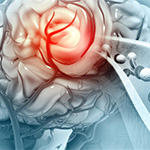

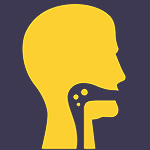

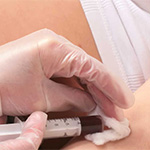
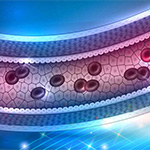


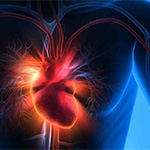
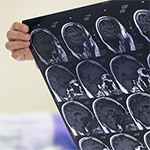
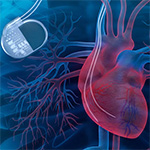



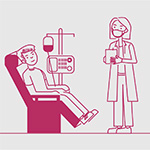


-blank-150x150-edited-160421.jpg)